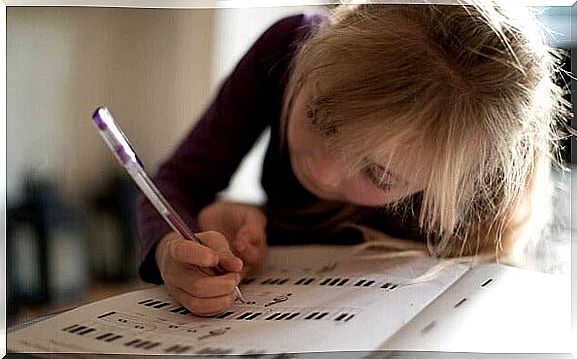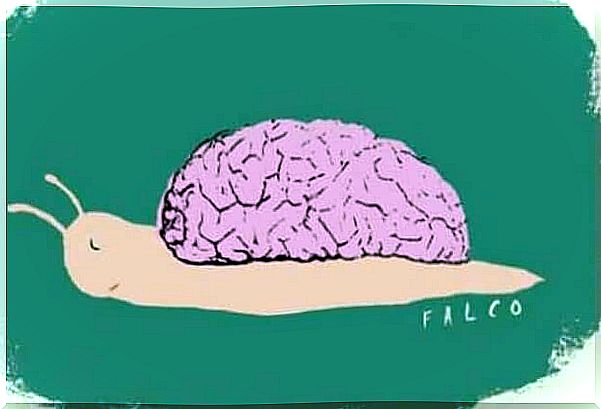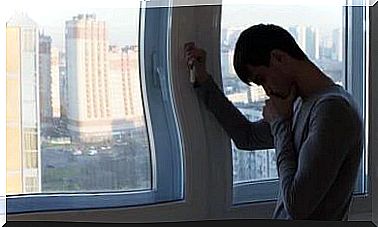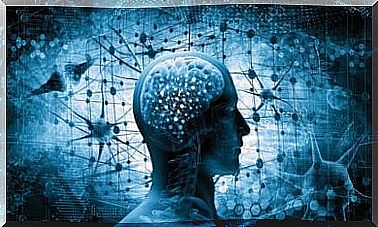Slow Learning: A Variety Of Learning Or An Anomaly?

We cannot talk about learning without talking about the education system. These are two closely related realities that condition each other. A first element, certainly problematic, lies in the name “slow learning”; this is problematic, because this name defines an ideal speed parameter with strict reference to this education system.
Most of the education systems applied in the world are rigidly standardized. In other words, they define what each person has to learn, how and when he has to do it. They also define the specific forms by which to assess whether or not the objectives are achieved.
It is from this system that we establish what is slow and what is not. It is assumed that the system is correct and that, if the individual meets what that system requires, it is working properly. If it does not, it has a deficit or a “need to be corrected” trait. This is when the labels like “slow”, “fast”, smart ”or not are put. And the worst thing is that it is on these bases that a whole path of academic success or failure is built.
The anecdote that we are going to tell you here is true: it is the story of a child in fourth grade who has difficulty reading and writing quickly. His teacher often tells him that he is the worst in the class. She is used to writing text on the board for the students to copy. However, the child in this story always ends up after the others.

Since not everyone can wait for her, the teacher erases the board and usually asks her to pick up a friend’s notebook later to catch up. One day, after this ritual, the teacher can no longer find the brush to erase the painting. The boy took it from her without anyone knowing about it and hid it. He finishes making the transcription, gets up and erases the board himself.
Can we say that this child is not intelligent? If we consider that intelligence consists of the ability to use the information at our disposal to solve the problems that we encounter, we can then conclude that the act of this boy is brilliant; indeed, it involves a process of analysis including the definition of a problem, the evaluation of different alternatives, and the proposal of a solution. It is also an ethical act, because at no time did this boy try to hide his behavior, but rather to point out and assert his right to have the same opportunities as others.
However, the latter was punished ; according to his teacher, he “delayed” the whole class and went against the instructions given to him. The only thing that interests the teacher in reality is that the children are able to copy the text on time.
All teachers and the education system itself proclaim that learning is an integral reality. This involves cognitive, but also emotional, relational, symbolic processes, etc. They at least admit that theoretically. However, how many teachers take into account the child’s life context to establish the real conditions under which he is learning?

In Bogota, Colombia, a pilot learning test was carried out in a public college, applying the teaching methods of Jean Piaget. For this teacher, it is not the content of the learning that counts, but the mental process involved. This is why in this pilot college qualifications and subjects were eliminated. There was a list of classes and each child chose which ones they wanted to attend, with no numerical mark ever given to them.
The results were surprising. The children were very motivated. They could attend the same class more than once if they needed to. The yield has increased significantly and the learning has been much more efficient. Since they weren’t approved or disapproved, they were more spontaneous when asking questions about what they didn’t understand. College was their favorite place. Something similar happened with what is called “the Miracle School” in Barcelona.
So, before pathologizing or stigmatizing a child by indicating that he has slow learning, attention deficit, intellectual retardation, etc., we should also make a diagnosis on the educational system from which he is judged and labeled. .
It is also preferable to analyze its context. Does something happen in his family or individual life that makes him anxious or depressed? Does its environment facilitate learning? Beyond neurological considerations, there is still a lot of progress to be made on this subject.











